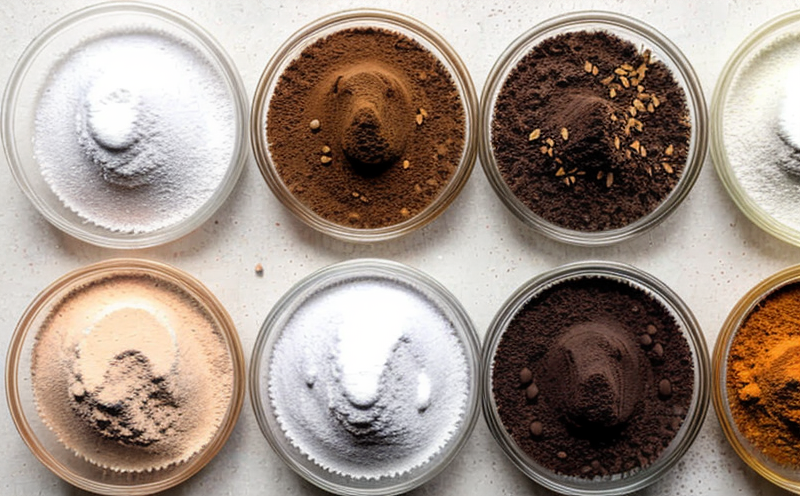ISO 12034 Maltitol Residue Analysis in Bakery Products
The analysis of maltitol residues in bakery products is a critical aspect of food safety and quality assurance. Maltitol, a sugar alcohol derived from corn syrup, is widely used as a sweetener due to its low glycemic index and lack of tooth decay potential. However, excess or improperly controlled use can lead to undesirable effects on product texture and shelf life.
ISO 12034 provides the methodology for determining the residue levels of maltitol in bakery products such as breads, cakes, pastries, and other items where it might be incorporated. This service ensures that manufacturers adhere to regulatory standards, protect consumer health, and maintain product integrity.
At Eurolab, we specialize in this analysis using advanced chromatographic techniques that offer high sensitivity and precision. Our state-of-the-art laboratories are equipped with the latest equipment, including gas chromatography (GC) and liquid chromatography (LC), which enable accurate quantification of maltitol residues.
The test process involves several key steps: sampling, preparation, analysis, and reporting. Samples are taken from bakery products according to standard practices, ensuring representative samples for analysis. The prepared samples undergo extraction processes tailored to the specific matrix, followed by instrumental analysis.
Our experienced analysts ensure that all procedures comply with ISO 12034 guidelines, guaranteeing reliable results. We employ validated methods and use certified reference materials (CRMs) to calibrate our instruments accurately. This ensures consistency and traceability of the results, which are reported in accordance with international standards.
The significance of this analysis extends beyond compliance; it also contributes to product development by identifying optimal levels of maltitol for enhancing sweetness without compromising quality or safety. The insights gained from such analyses can help refine formulation processes and improve overall product performance.
By leveraging our expertise in this area, clients gain a competitive edge through better-informed decision-making regarding ingredient usage. This service supports not only compliance with regulatory requirements but also the broader goals of food safety, quality assurance, and innovation within the bakery industry.
Why It Matters
The importance of maltitol residue analysis in bakery products cannot be overstated. Proper control of maltitol levels ensures that the final product meets regulatory standards while maintaining its desirable characteristics like texture and shelf life.
- Regulatory Compliance: Ensures adherence to international and local regulations regarding food additives, particularly those related to sugar alcohols.
- Safety for Consumers: Minimizes health risks associated with excessive consumption of maltitol or other sugar alcohols.
- Quality Assurance: Maintains product quality by ensuring consistent levels of sweeteners across batches and production runs.
- Innovation: Provides data that can be used to optimize formulations, leading to new product developments that balance taste with health considerations.
Eurolab Advantages
We pride ourselves on offering unparalleled expertise and comprehensive services in maltitol residue analysis. Our team of scientists and analysts is dedicated to providing accurate, reliable results that meet the highest standards.
- Advanced Technology: Utilize cutting-edge chromatographic techniques for precise measurement.
- Experienced Analysts: Rely on our skilled professionals who are well-versed in international guidelines and best practices.
- Certified Laboratories: Our facilities meet the stringent requirements set by regulatory bodies worldwide.
- Comprehensive Reporting: Provide detailed reports that include all relevant data points for informed decision-making.
Why Choose This Test
- Achieve regulatory compliance with ISO 12034 standards.
- Promote safer products by ensuring proper maltitol levels.
- Increase consumer trust through transparent ingredient labeling.
- Support product development and innovation efforts.
- Reduce the risk of legal issues arising from non-compliance or safety concerns.
- Enhance brand reputation by demonstrating commitment to quality and health.





